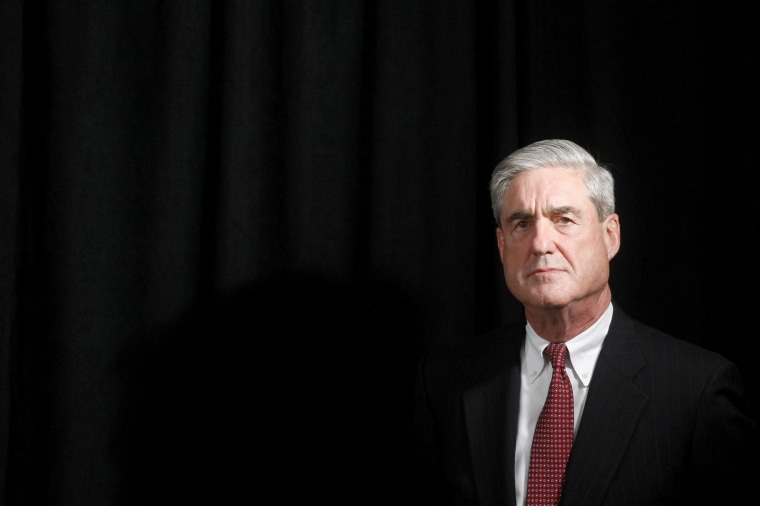On the eve of Michael Cohen’s testimony before the House, the D.C. Circuit Court of Appeals upheld Special Counsel Robert Mueller’s authority to investigate Russian collusion in the 2016 presidential election. But in doing so, it used a rationale that could undermine Mueller’s independence and potentially even change the course of the investigation.
The court’s reasoning in a case brought by an aide of Trump advisor Roger Stone, Andrew Miller, underscores Mueller’s lack of independence and the power of the attorney general to oversee, regulate and even terminate the special counsel.
Miller had argued that Mueller could not compel him to testify before the grand jury in his investigation because Mueller had not been duly appointed by the president and confirmed by the Senate as a “principal officer” not subject to the oversight of anyone else appointed by the president. The court, however, found Mueller to be an “inferior” officer whose work is supervised by a person (first Rod Rosenstein and now attorney general William Barr) selected by the president and confirmed by the Senate, as required by the appointments clause.
The court emphasized that while the Department of Justice regulations that created the office of special counsel give considerable latitude in pursuing an investigation, “’ultimate responsibility for the matter and how it is handled’ resides in the attorney general.”
To illustrate that Mueller cannot act independently, the court noted that the attorney general’s authority extends to establishing the parameters of the special counsel’s jurisdiction, requiring the special counsel to follow departmental “policies and practices,” and having the power to overrule the special counsel’s contemplated actions.
Miller used a similar argument to one upheld last June by the U.S. Supreme Court when it said that decisions by administrative law judges in cases prosecuted by the Securities and Exchange Commission were invalid because the judges had not been properly appointed under Article II of the Constitution.
Miller’s legal theory was that Mueller lacked legal authority to issue his grand jury subpoena (for which he was being held in contempt) because Mueller had been appointed special counsel by Deputy Attorney General Rod Rosenstein after Attorney General Jeff Sessions recused himself from the Russia probe, rather than by Trump.
He had asked a federal district court to quash Mueller’s subpoena but, last August, Judge Beryl Howell in federal court in D.C. rejected Miller’s argument and held him in civil contempt for refusing to obey the subpoena. It was that contempt order that was unanimously upheld by a three-judge appellate court on Tuesday.
Miller had argued that the attorney general’s oversight was limited because, under departmental guidelines, Mueller could not be fired except for “good cause.” The court disagreed, pointing out that the attorney general had the power to rescind the “good cause” requirement: “Special Counsel Mueller effectively serves at the pleasure of an executive branch officer who was appointed with the advice and consent of the Senate.”
The court’s language underscores the fragility of Mueller’s position: The special counsel is not at all independent. His investigation and his final report are, by the court’s explicit reasoning, under the ultimate control of the attorney general.
The ultimate consequence of the court’s finding is bigger than Miller: It likely means that no court will interfere should the attorney general curtail Mueller’s investigation, embargo some or all of Mueller’s final report or even discharge the special counsel before he makes his report.
The court of appeals’ reasoning not only specifies that Mueller is an “inferior officer” whose decisions can be countermanded by the attorney general, but that he must be an “inferior officer” if his probe is to survive constitutional challenge at all.
Thus, if the courts are powerless to ensure either the special counsel’s independence or to provide that his anticipated final report be made public, it will fall to Congress to do so.
To date Congress has not acted; an effort to obtain a vote in the Senate on a bill to protect Mueller last November failed.
But Rep. Adam Schiff, D-Calif., chairman of the House Intelligence Committee, this week said that, if Attorney General Barr does not make Mueller’s report public, Congress would act.
Schiff specifically said that congressional subpoenas would demand the release of Mueller’s final report and possibly compel Mueller to testify about his findings.
That may well turn out to be necessary. As this decision makes clear, congressional oversight and not the courts will be the only viable recourse to ensure that this “inferior officer’s” report about possible Russian collusion ever sees the light of day.



